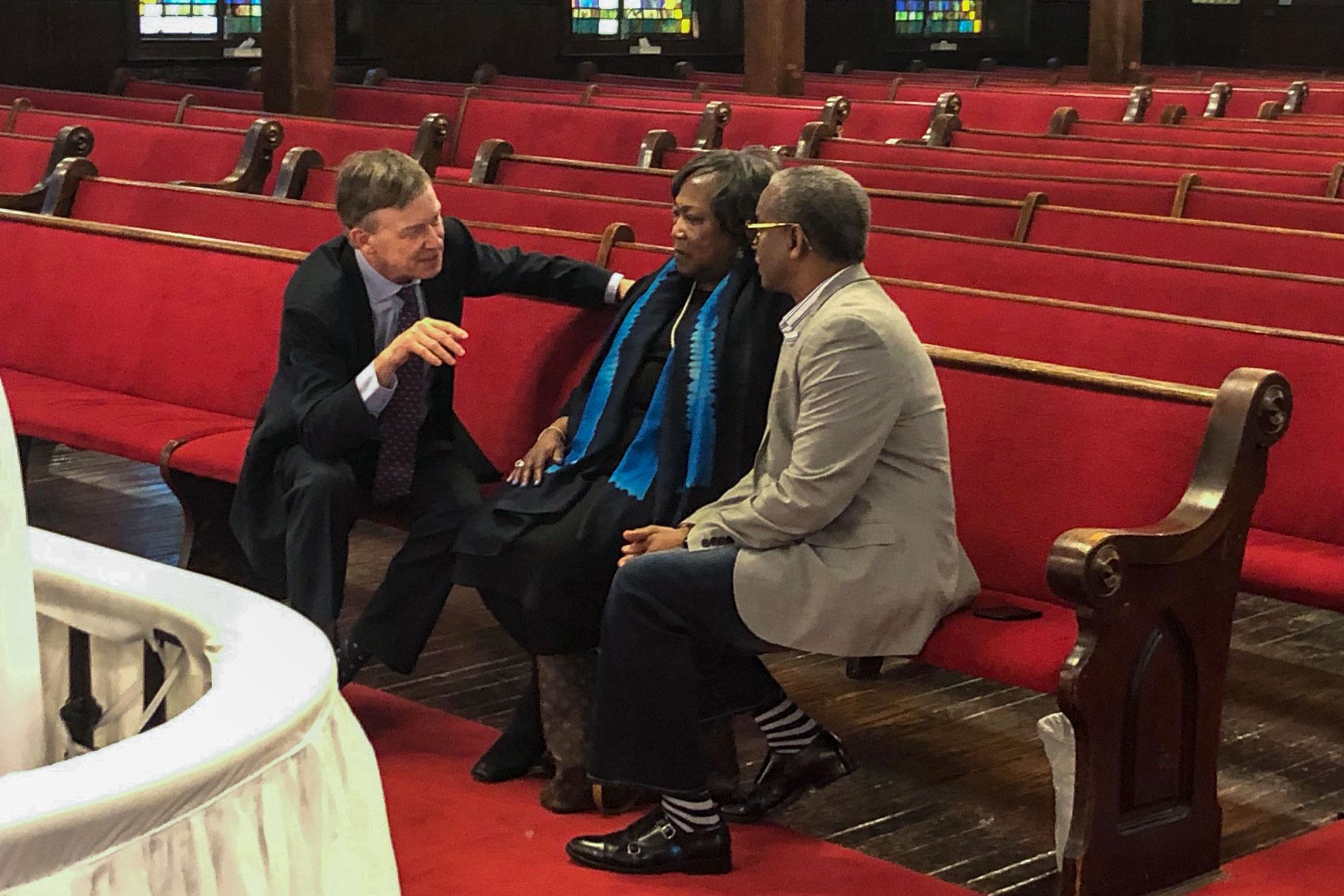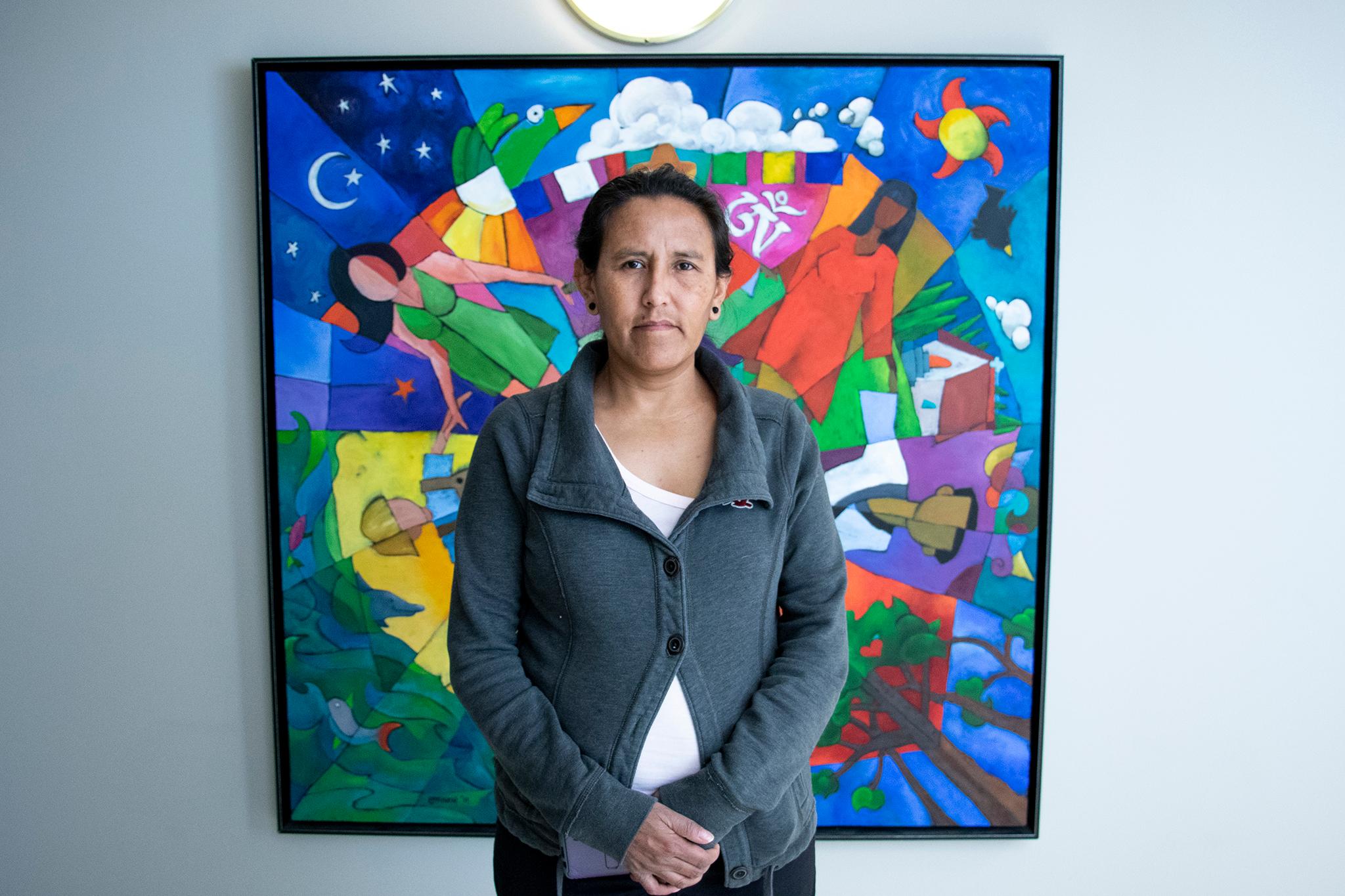

At one point last weekend — actually, more than a couple of times — John Hickenlooper felt compelled to tell a listener, whether in a church in South Carolina, or over a plate of barbecue in Alabama, why the numbers reflecting his decidedly underdog status in the race for the 2020 Democratic presidential nomination shouldn't necessarily be taken at face value.
"Certainly I haven't been awash in free media," he said. "When you have Bernie Sanders and Beto O'Rourke and people who are raising tens of millions of dollars from small donors who are really swept up in their celebrity, that means you're going to start out pretty slow.
"But I do believe that everywhere I've gone, Iowa, South Carolina ... there have been very positive receptions," Hickenlooper said. "That's what makes me think, 'If I get those kinds of receptions from very highly probable primary voters, then it's just a question of time.' "
Although the Democratic National Convention is still more than a year away, as the former New York Yankees' catcher Yogi Berra once said, "It's getting late early." One thing that's of the utmost importance to Hickenlooper's campaign is qualifying for June's Democratic debates, when perhaps as many as 20 candidates will meet, spread out over two nights.
With a field that already has 17 announced candidates, with more than another half dozen, including Colorado Sen. Michael Bennet poised to throw their hats into the ring, the Democratic National Committee, which oversees the debates, is laying down some ground rules.
In order to qualify, candidates have to either gather 65,000 donors, including at least 200 each in 20 states, or by registering at least 1 percent in three national or early primary-state polls. Should that fail to winnow the field sufficiently, the DNC says it may decide that hopefuls have to achieve both criteria.
Hickenlooper has already qualified on the polling front, but admits he's yet to hit the mark with donors. While the campaign won't provide the exact figures, the fundraising totals for the year's first quarter are due out April 15.
"We'll see; I don't think anybody knows," Hickenlooper said. "We're running a good campaign; I think we'll have lots of donors — will we have 65,000? I think that's a little bit of a stretch right now, but you never know."
Hickenlooper's biggest supporters say there would be no problem reaching that figure if he could just have a face-to-face conversation with potential donors. Short of that, the former governor has scrambled to put himself out there, making frequent appearances on CNN, including an hour-long town hall, as well as efforts like penning an editorial in The Washington Post taking issue with the approach the Green New Deal is taking toward fighting climate change. The initiative is favored by young Democrats like Alexandria Ocacio-Cortez.
The result has been something of a mixed bag. In Alabama he had a spirited exchange with a young voter who took issue with Hickenlooper's reticence at embracing the Green New Deal.
"His approach is very misguided and very unfortunate -- he'll never get the youth vote or the environmentalists' vote," Jeff Migliozzi said afterward.
It was during the CNN town hall when Hickenlooper was widely panned for what some considered a tone-deaf attempt at a joke, asking the moderator when will women candidates be asked if they would include male running mates on their tickets.
"If you're not designing your campaign to be molded to what the existing orthodoxy is, you're going to take some shots," Hickenlooper said. "You can be in that town hall, and for 53 minutes make great points, and be concise and articulate and humorous and people can gravitate towards you ... and a humorous aside that was misinterpreted. But the media right now, especially in a primary like this, if there's something they can twist to get people to click on it — basically it's click bait."
Hickenlooper seemingly fared much better over the weekend. On Friday, he drew praise when, speaking at a civil rights conference in New York, he said that slavery "is a nagging, unrelenting shame of America," and that an apology should come from the Oval Office. He also indicated that he would be in favor of looking into reparations to the descendants of slaves.
The speech kicked off a weekend that saw Hickenlooper make a concerted effort to reach out to the African-American community. After leaving New York, he traveled to Montgomery, Alabama, where he toured a memorial and museum dedicated to lynching victims. On Saturday he went to Charleston, South Carolins; among his stops there was a visit to the Emmanuel African Methodist Episcopal Church, where he met with the Rev. Anthony Thompson and Polly Sheppard.
Thompson's wife was one of nine people killed by a white supremacist in a 2015 shooting at the church. Sheppard was in the church during the attack but survived.
“I think it’s important that you go to where people are. You meet them in their living rooms, or in their place of worship," Hickenlooper said. "Sometimes you come together in places where they’ve had to experience great sacrifice and loss.”
Hickenlooper was the third 2020 candidate to go to the church, following author Marianne Williamson and New Jersey's Sen. Cory Booker. As was the case at the Alabama memorial, Hickenlooper said the experience wasn't necessarily as important politically than personally, giving him a chance to grow from the experience.
The Rev. Eric S.C. Manning, the pastor at Emmanuel, said it's important that the candidates make time to come to the church.
"When you take inventory of what's taking place in this country — the negative rhetoric, the hateful speech, the things we're seeing today, those who come through are being reminded that the office requires empathy and sympathy and understanding."









